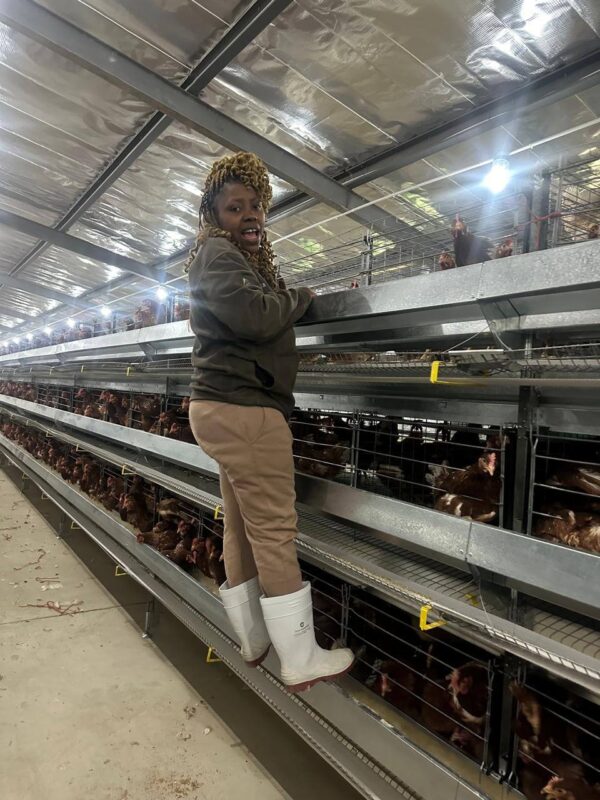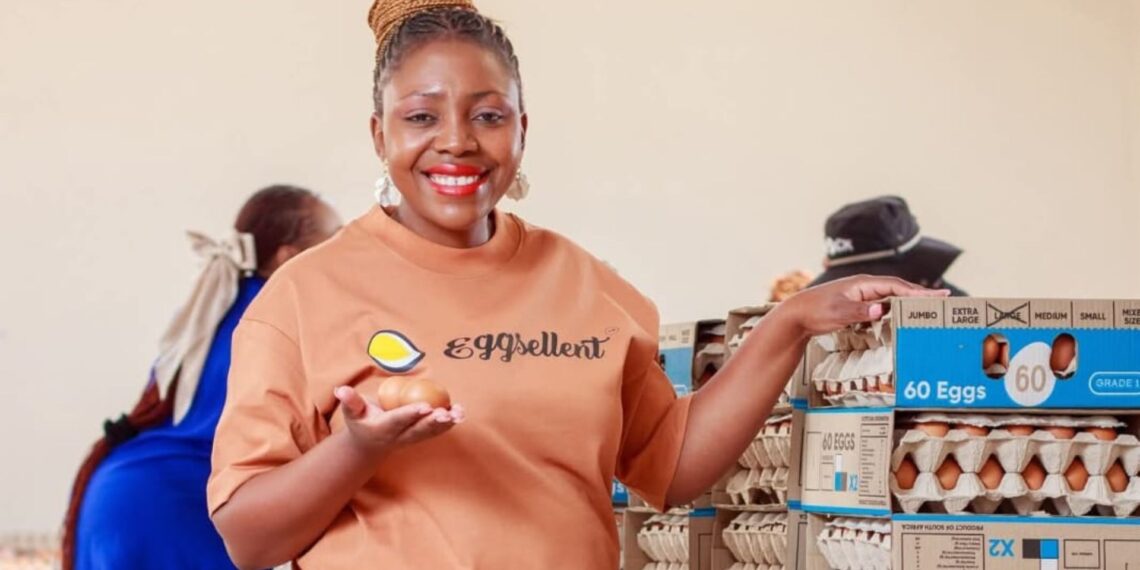A lot can change in three years. Lebogang Mashigo grew by leaps and bounds, from being a struggling single mother with just R350 in her pocket to a thriving egg entrepreneur running a commercial farm with a 30 000-egg capacity in rural Mpumalanga.
This isn’t the first time Food For Mzansi has shared Mashigo’s story. We caught up with her three years later, and she’s still going strong.
Taking on the roles of mother and business leader, Mashigo juggles multiple responsibilities alongside running her day-to-day farming operations.
Her farm, located in Kwaggafontein on a Hartesbeesfontein plot under Thembisile Hani Local Municipality, is environmentally controlled and has a capacity of 30 000 table eggs.
Humble beginnings spark growth
Mashigo’s farming began out of necessity and survival. “I started farming in my backyard for survival and self-employment. The demand for our product inspired me to look for government support,” she says.
“Before farming, I was an entrepreneur. I had started other businesses that failed. I grew up very entrepreneurial, and I was always trying to fit in until I made peace with being different and not fitting in. I told everyone that I was gonna be my own boss, and now everyone believes me.”
However, the road was far from easy. In 2019, Mashigo faced tremendous odds, a single mother with only R350 in her bank account, struggling with financial pressures and health challenges.

Lebogang Mashego during one of her exhibitions at an agricultural show in Mpumalanga. Photo: Supplied/Food For Mzansi
She initially sourced eggs from a larger farm, raising money for operational costs on her own while battling depression and post-natal stress. These hardships tested her resilience, but didn’t deter her commitment to succeed.
📢 Stand Up, Be Seen, Be Counted
We want to provide you with the most valuable, relevant information possible. Please take a few minutes to complete this short, confidential survey about your farming practices and challenges. Your feedback helps us tailor our coverage to better support the future of agriculture across Mzansi.
To test the market before producing her own eggs, she started reselling them at R350 a box. “Eggs were cheaper to start selling. This helped me to test the market before producing.”
Her persistence paid off when she entered and won a R20 000 cash prize in a Covid-19 relief competition broadcast on a local radio station. This critical funding provided the boost she needed to transition from reselling to full-scale production, turning her small start-up into a thriving business.
Related stories
- Mpumalanga veggie king: 5 000 cabbages per weekend!
- Cape couple cultivates thriving exotic mushroom business
- R350 grant puts sisters on agri path to success
- Blended finance unlocks opportunities for NC farmers
From entrepreneur to commercial farmer
By age 33, Mashigo had achieved a major milestone by owning a commercial plant that employed eight permanent staff, an achievement she treasures deeply and dedicates her time to sales and marketing, while entrusting the day-to-day farm operations to her capable team.
“Knowing that my dream and idea have lived to impact others, is the greatest achievement for me….that more people now depend on me for their eggs, for salaries, and my drive to see myself as a preferred supplier of eggs in Southern Africa. The dream keeps me busy,” she says with pride.
To manage growth, she hired a team to run the business with her and for her. She has also employed a full-time mentor and outsources all the skills she doesn’t have.
“I have a team that helps to run the day-to-day at the farm. I focus on what I’m great at; that’s selling and marketing my business. I have learned management skills, leadership skills, planning, branding and marketing, pitching for investment and the development of people skills.
“It is not very easy to balance. I have had to be intentional about the people I have around me and what I want them to deposit in my life and vice versa,” she says.

Lebogang Mashigo oversees daily activities on her poultry farm in Mpumalanga. Photo: Supplied/Food For Mzansi
Overcoming challenges and leading with vision
Scaling up her operation also came with some obstacles. “Challenges of scaling have been intensive. Running small to now scaling up has been difficult.
“The financial planning, the hiring of new people with and without experience, being a CEO and not acting like a hustler, being a young black and female farmer, you have to explain how you got here and what you know.”
Mashigo also lost friends who couldn’t understand her shift, but she did not let that deter her.
“Being a commercial farmer in a community that doesn’t understand the concept and doing business in a rural area. People think you have money because of the size of the buildings in my name.”
However, resilience, innovation, and the fierce determination to overcome every cultural and economic hurdle keep her going.
Her advice to aspiring farmers is clear: test and secure the market first, find a good mentor, start small with what you have, and learn the business by reselling before producing yourself.
READ NEXT: Tipsy Twenties founder grows wine dreams far from the Cape

















